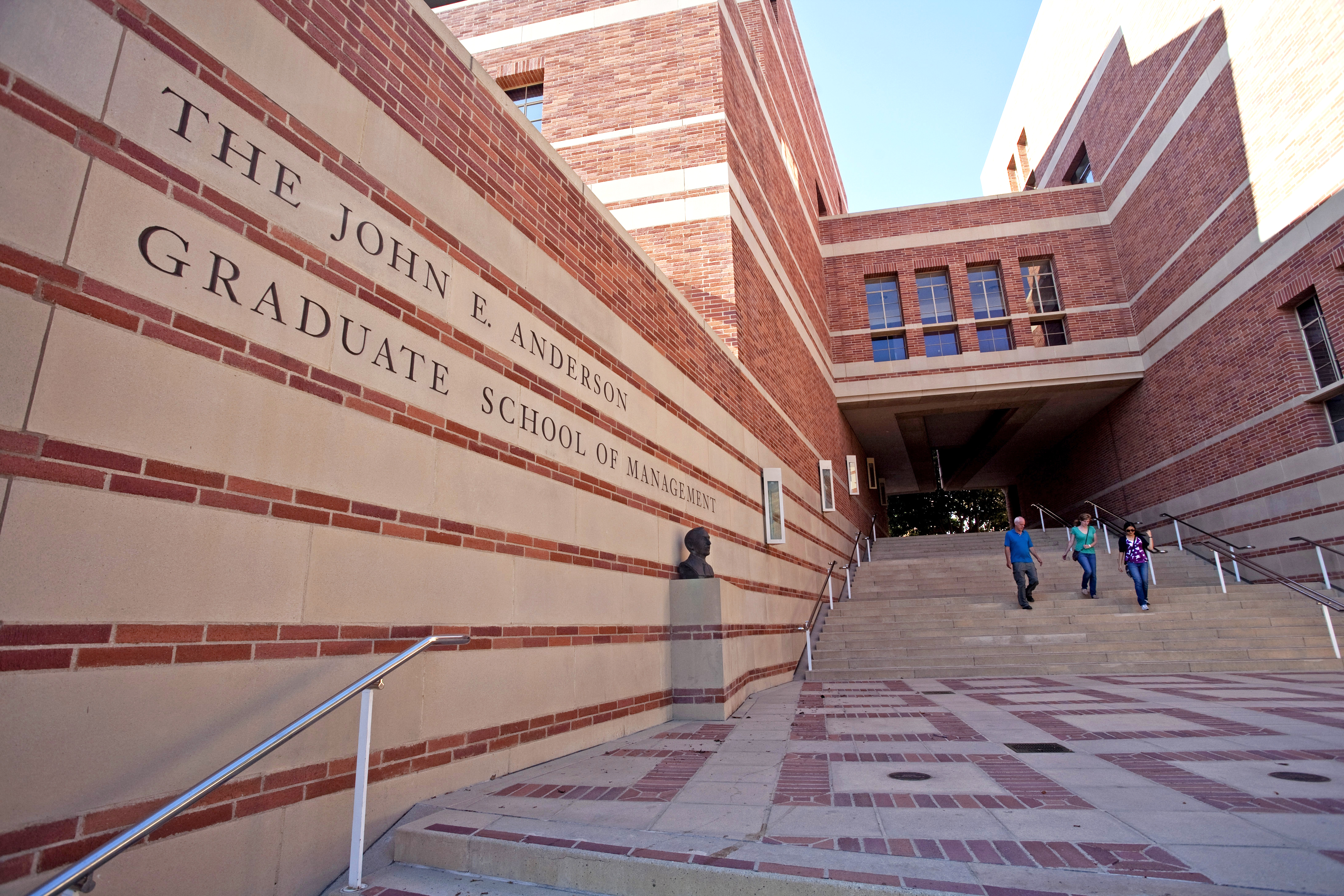The UCLA Anderson School of Management’s proposal to become financially self-supporting came to a standstill Friday, when a University of California Academic Senate committee decided the program is not eligible to be financially independent under the UC’s current policy.
The Anderson proposal would have allowed the Master of Business Administration program to be financially independent from UC funds, while still remaining connected to UCLA. The funds that would not go toward Anderson ““ totaling around $6 million annually ““ would be given to the chancellor’s office, which would distribute the money as needed back to UCLA, according to the proposal.
Supporters of the proposal, including Anderson Dean Judy Olian who first argued for it in 2010, said the move to becoming financially self-supporting would help the school by allowing more flexibility with their funding, according to Daily Bruin archives.
But in a memo sent to the school on Friday, the UC committee stated that no evidence was provided to show how the MBA program fits under the UC’s requirements for self-supporting programs.
Last year, UC President Mark Yudof adopted a series of requirements for the creation of self-supporting programs. Under the policy, programs must fall into at least one of four groups to be considered for self-supported status.
One of these categories requires programs to cater to “non-traditional” students, like international or fully employed students. The other categories require the program to be offered online, or be abnormally scheduled or located, such as on weekends or off-campus.
The committee voted unanimously, with one member abstaining, in favor of suspending any further review of the proposal until a new UC policy can be implemented or the current policy is changed.
The current UC policy does not address programs looking to transition from state-supported to self-supporting status, said Rachael Goodhue, whose term as chair of the committee ended on Saturday.
“There is no policy in place for this type of proposal, and that policy needs to be in place before we continue the review,” Goodhue said.
Instead, the current policy was designed more specifically for programs that were created as financially self-supporting from the beginning, she said.
For example, the Anderson school has several programs, including the Fully Employed MBA program, that were created as self-supporting.
A new policy is partially contingent on the efforts of the new UC vice provost, Aimée Dorr, who took office on July 2 after stepping down from her previous position as dean of UCLA Graduate School of Education, Goodhue said.
The UC committee also found that the data given in the proposal was not sufficient to show the financial benefits of becoming self-supporting for either the Anderson school or UCLA as a whole, according to the memo the committee sent to the school.
The proposal had said that the flexibility of controlling their own resources would allow the Anderson school to set tuition and professor salaries at rates that more closely match other business schools’.
Another concern raised by the committee was the potential implication Anderson’s conversion from state-supported to self-supporting might have on the rest of the UC system ““ a concern that would need to be addressed through a systemwide investigation, the memo stated.
“(The committee) is dismayed that (Anderson) considers freedom from direct Regental oversight an important advantage of self-supporting status,” the memo stated.
For the Anderson proposal to continue the review process, it will have to meet the requirements of a new UC policy, and the school will have to submit a revised proposal back to the UCLA Graduate Council for review.
Olian could not be reached for comment by press time.
Compiled by Alexia Boyarsky, Bruin staff.
